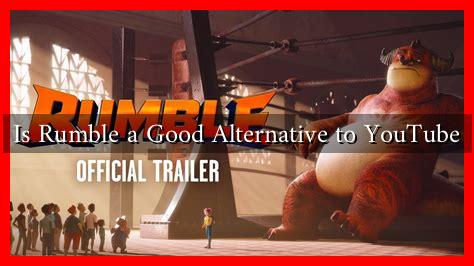-
Table of Contents
Is Rumble a Good Alternative to YouTube?
In the ever-evolving landscape of online video platforms, YouTube has long been the dominant player, boasting over 2 billion monthly active users. However, as content creators and viewers seek alternatives that offer different monetization options, fewer restrictions, and a more diverse range of content, platforms like Rumble have emerged as viable competitors. This article explores whether Rumble is a good alternative to YouTube by examining its features, user experience, monetization strategies, and community dynamics.
Understanding Rumble: A Brief Overview
Founded in 2013, Rumble is a video-sharing platform that allows users to upload, share, and monetize their videos. It has gained traction, particularly among creators who feel constrained by YouTube’s content policies. Rumble positions itself as a platform that champions free speech and offers a more straightforward monetization model.
Key Features of Rumble
Rumble offers several features that differentiate it from YouTube:
- Monetization Options: Rumble provides various monetization avenues, including ad revenue sharing, licensing, and subscription models.
. Creators can earn money through ads on their videos or by licensing their content to media outlets.
- Content Freedom: Rumble promotes itself as a platform that supports free speech, attracting creators who may have faced censorship on YouTube.
- User-Friendly Interface: The platform is designed to be intuitive, making it easy for users to upload and manage their content.
- Focus on Viral Content: Rumble has a unique algorithm that promotes viral videos, giving creators a chance to reach a broader audience quickly.
Comparing Monetization Strategies
One of the most significant factors for creators when choosing a platform is monetization. YouTube’s Partner Program requires creators to have at least 1,000 subscribers and 4,000 watch hours in the past year to qualify for ad revenue sharing. In contrast, Rumble offers a more accessible monetization model:
- Creators can start earning money as soon as they upload their videos.
- Rumble allows users to license their videos to media companies, providing an additional revenue stream.
- The platform has a straightforward payout structure, which can be appealing for new creators.
According to a report by Business of Apps, YouTube creators earned an average of $0.01 to $0.03 per view, while Rumble’s monetization model can yield higher earnings for viral content due to its licensing options.
User Experience and Community Dynamics
The user experience on Rumble differs significantly from YouTube. While YouTube offers a vast library of content across various genres, Rumble’s focus is more niche, often attracting creators from specific communities, including political commentary, alternative news, and lifestyle content. This can create a more engaged audience but may limit the diversity of content available.
- Community Engagement: Rumble’s smaller user base fosters a sense of community among creators and viewers, allowing for more direct interaction.
- Content Discovery: Rumble’s algorithm prioritizes trending content, which can help new creators gain visibility more quickly than on YouTube.
- Less Competition: With fewer creators on the platform, new users may find it easier to stand out and build an audience.
Challenges and Limitations of Rumble
Despite its advantages, Rumble is not without challenges:
- Limited Audience: With a smaller user base compared to YouTube, creators may find it challenging to reach a broad audience.
- Content Variety: The platform’s focus on specific niches may not appeal to all creators, particularly those looking to reach diverse demographics.
- Brand Recognition: YouTube’s established brand and extensive resources make it a more recognizable platform for advertisers and creators alike.
Conclusion: Is Rumble a Good Alternative?
In conclusion, Rumble presents a compelling alternative to YouTube for certain creators, particularly those seeking more freedom in content creation and monetization. Its user-friendly interface, diverse monetization options, and supportive community make it an attractive choice for niche content creators. However, the platform’s limitations, including a smaller audience and less content variety, may deter some users.
Ultimately, whether Rumble is a good alternative to YouTube depends on individual goals and content strategies. For creators who prioritize monetization and community engagement over mass reach, Rumble could be the perfect platform to explore.





